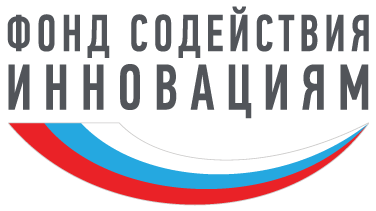In the framework of the NTI, financial support is provided to technology companies and teams that have proposed the project in accordance with the directions and activities of the EnergyNet roadmap and also undergone the necessary selection procedures
The NTI Technological Breakthrough program is designed for teams of researchers, small- and medium-sized technology companies and research centres developing breakthrough products in NTI markets. Grant and investment support in the amount of up to RUB 165 million is envisaged for them.
NTI Technological Breakthrough programme
The NTI Infrastructure programme is aimed at developing infrastructure projects for the NTI markets — testing grounds, engineering, and certification centres, data libraries, accelerators — and provides the opportunity to receive grants and investments worth up to RUB 495 million.
NTI Infrastructure programme
Winners of the UMNIK program, including the UMNIK-NTI competitions, receive a grant of RUB 500,000 for 2 years.

The grant amount is up to RUB 20 million

Regulatory restrictions may consist in:
— The absence of legal and technical regulation necessary for providing legal support of the market launch of new EnergyNet products and the launch of new business activities for the implementation of new business models;
— The absence of regulations that provide conditions for the development and promotion of advanced technological solutions;
— The application of regulatory legal acts whose provisions do not respond to the challenges and development priorities in the field of science and technology etc.
If you have any suggestions with regard to amending regulations in key segments of the EnergyNet market, please send your suggestions in the format of draft regulations and explanatory notes using the form given below.
The legal status of functioning of active energy complexes within the Unified Energy System (UES) of Russia and the specific features of their participation in the markets of electric energy, capacity and related services are established by Resolution No.320 of the Government of the Russian Federation dated 21 March 2020.
Please send your suggestions for improving AEC regulation using the form given below.
Currently, work is underway to ensure that ESS can participate in the wholesale and retail electricity and capacity markets.
Please send your suggestions for the regulation of these relations, for increasing the attractiveness of ESS use by existing participants in the electricity and capacity markets, and other related issues, using the form given below.
The conditions for implementing the pilot project for the creation (development) of supply and demand response aggregators to combine consumers with controlled loads, distributed generation and storage facilities for their joint participation in the wholesale and retail electricity markets are defined by Resolution No.287 of the Government of the Russian Federation dated 20 March 2019.
If you have any suggestions for detailing the conditions for electricity demand management aggregators to participate in the purchase and sale of electricity and capacity and other related issues, please use the form given below.
Scenario conditions for implementing an experiment (pilot project) to improve the reliability and quality of power supply to consumers through the introduction of new digital technologies and optimisation of grid operators in at least 2 regions of the Russian Federation have been developed and will soon be approved by an order of the Government of the Russian Federation.
Please send your suggestions in this area using the form given below.
The hydrogen energy systems market is a market for energy and chemical engineering products used to store electricity in the hydrogen cycle, i.e., to produce, store, transport and generate energy from hydrogen fuel.
If you have suggestions for regulatory changes that allow the hydrogen energy systems market to develop more actively, please write to us below.





— Proactive people from the region of the Russian Federation, with the support of their local Boiling Point, organise the regional working group for EnergyNet
— They send the minutes of the working group founding meeting to the IC by e-mail: info@internetofenergy.ru
With the support of the IC, the regional working group elaborates the priority areas of work related to the EnergyNet roadmap as well as the key project areas.
At the initiative of the regional working group, with the support of the regional Boiling Point and IC, an agreement on strategic cooperation between the administration of the Russian Federation region and the IC is drawn up and signed for the purpose of providing administrative and political support for the implementation of priority areas of work.
At the initiative of the regional working group with the administrative and resource support of the administration of the Russian Federation region and interested organisations, the IC carries out the intensive acceleration of EnergyNet regional projects with the involvement of industry and technology experts and/or development of an EnergyNet regional roadmap.
As part of the implementation of the EnergyNet regional roadmap, technological projects prepared by the initiators and complex pilot projects, with the support of the IC, are examined with respect to the market, architectural, technological, and regulatory aspects. The project leaders receive advice on the use of various forms of NTI support, as well as recommendations on project implementation.
To review the project at the ATC meeting, you will need to fill in the project summary.
The presentation must meet the following requirements in terms of structure:
1. Brief information about the project: goals, results, team
2. Agenda
3. Proposed solution, readiness level
4. Scientific novelty
5. Comparison with counterparts in terms of technical and economic indicators
6. Solution production chain, cooperation (if production is planned)
7. Market assessment
8. Economic impact assessments
9. Request to WG and EnergyNet community
43 Bolshaya Nikitskaya Str., Moscow








